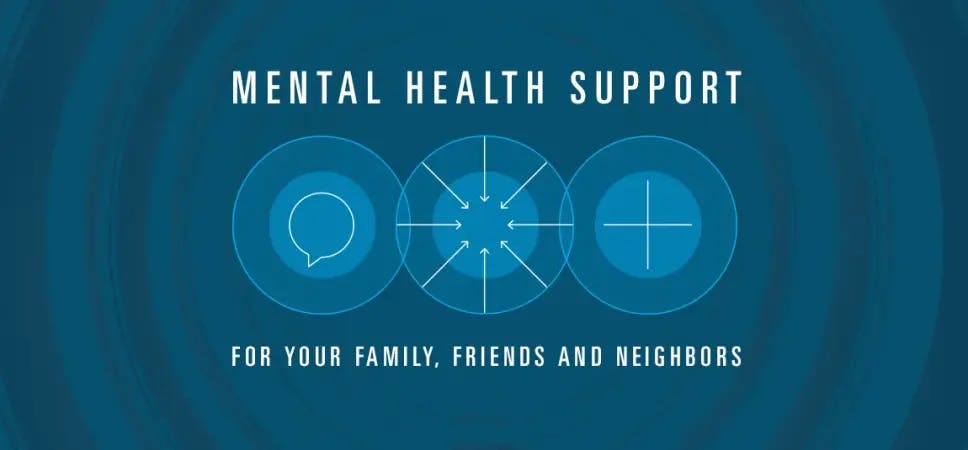
When I was 26, I got sick, and I never got better.
Several years later, I still haven’t gotten used to living with a chronic illness. I’ve never had a moment of radical acceptance. I’ve never woken up and said, “Ah, yes, I get it now! This is all part of a grand plan! It all makes sense!”
What I have done is learned to live a meaningful life within my limitations. It didn’t happen overnight, but it did happen.
If you’ve recently been diagnosed with a chronic medical condition, I want to do two things for you:
I want to make space for whatever you’re feeling. Anger, sadness, grief—it’s all welcome.
I want to give you reason to hope.
Here are a few steps that helped me find direction and purpose amidst the struggle.
1. Find a good health care team
Finding doctors who you connect with and trust is essential. Look for people who are supportive and who understand the impact your health condition has on your daily life.
If you don’t feel like your doctor is invested in your care, find a new one. These people will be a big part of your life. They should make you feel comfortable, cared for, and empowered.
If you’re struggling to find the right person, it may help to ask friends and family members for recommendations.
Our Find a Doctor tool can help you find doctors who are close to home and in-network for your plan. If you’re not a Blue Cross and Blue Shield of North Carolina member, you can still use this tool to find highly-rated doctors in your area.
You can also search by specialty. So, whether you’re looking for a general surgeon, a therapist, or an infectious disease expert, this tool can help you narrow your search.
Blue Cross NC also has a free case management program for people with complex health needs. It assigns you a case manager—a registered nurse—who can:
Answer questions about your condition or treatment plan
Guide you in managing your condition day to day
Advocate for you
Help you understand your benefits
Connect you to more resources
2. Get mental health support
People with chronic health conditions are two or three times more likely to suffer from depression than the general population.[1]
It makes sense—chronic illnesses can be painful and disabling. They often change the way we move through the world. They can limit us in frustrating and life-altering ways.
So it’s even more important for those of us who are struggling with a diagnosis to find support. I highly recommend finding a therapist or other mental health professional you trust. If you’re a Blue Cross NC member, call the number on the back of your card, and a customer service member can help you connect with a therapist or clinician.
My therapist has helped me manage the emotions that come along with my illness. (And trust me, they’re all over the map). She’s helped me understand that it’s not only okay but completely understandable to grieve the life I had before.
She’s also helped me manage my symptoms in practical ways. Together we created a system where I check in with myself several times a day and rank my fatigue on a scale from 1 to 10. On an average day, I wake up at a 6. If I realize that I’ve passed an 8, I put my work aside, and I stop to rest.
Support can also come from friends and family. While they don’t replace a mental health professional, your closest loved ones can often provide a listening ear or a home-cooked meal. Most of the time, your loved ones want to help. My best advice: Let them.

3. Figure out what you can control, and focus on that
One of the hardest parts of chronic illness for me has been coming to terms with the fact that so much is out of my control. I can’t just decide to get better. I can’t decide that I will be healthy enough to walk a mile, or even to wash the dishes on some days.
But there are a few things I can control, for the most part:
Following my doctors’ instructions
Seeking support from friends when I need it
Getting enough rest
Eating healthy meals
Trying new medicines or treatment plans to manage my symptoms
These things won’t look the same for everyone. But chances are there are a handful of things you can to do to feel a little bit better.
After a lot of resistance, one day I decided I was ready to adapt to my new circumstances. I bought a cane to help me walk on the bad days. I got a laundry hamper on wheels so I can push it through the house instead of carrying it. I filled my nightstand drawer with snacks and water bottles for the days when I can’t get out of bed.
The little things added up, and they made my life a little bit easier. A little bit more comfortable.
More importantly, I think, they helped me realize that I still have some control. Chronic illness can take a lot from you, but it can’t take everything.
[1] NCBI; Epidemiology and treatment of depression in patients with chronic illness
Blue Cross and Blue Shield of North Carolina offers several decision support tools to aid you in making decisions around your health care experience. These tools are offered for your convenience and should be used only as reference tools. You should consult your own legal counsel, tax advisor or personal physician as applicable throughout your health care experience.
Ready to get started?
Related Articles

6 Surprising Ways Hiking Can Improve Your Mental Health
Reduce the risk of heart disease
Reduce your risk of hypertension, or high blood pressure. (Hiking regularly has been shown to lower blood pressure by 4 to 10 points.)
From Blue Cross NC By Joe Miller

Spending The Holidays Alone? 3 Tips To Take Care Of Your Mental Health
With COVID-19 cases rising, many of us have chosen to stay home for the holidays. This might bring up feelings of sadness or loneliness.
To cope with difficult feelings, make a self-care plan ahead of time.
Emilie Poplett

How To Find A Therapist If You've Never Had One Before
At Blue Cross and Blue Shield of North Carolina (Blue Cross NC), your total health is our top priority, now more than ever, including your mental and emotional health.
If you’re struggling with your mental health and need some extra support, you’re not alone. Studies show that the rate of anxiety and depression has risen significantly among American adults during the pandemic. And our children’s mental health is suffering, too.
via Blue Cross NC by Emilie Poplett

How To Help Someone Who Is Struggling With Mental Health
These interactions are common. I now have similar conversations with coworkers, friends and family members. Although it’s certainly not all “doom and gloom,” my loved ones mention sleepless nights, invasive thoughts, loneliness – and yes, hopelessness.
Indeed, research shows that during times of crisis, the prevalence of anxiety and depression is expected to double. Those with pre-existing mental health or substance-related conditions are among the most vulnerable. People at higher risk for contracting COVID-19 (such as older adults or those with underlying health conditions) may also experience more worry.
Blue Cross NC